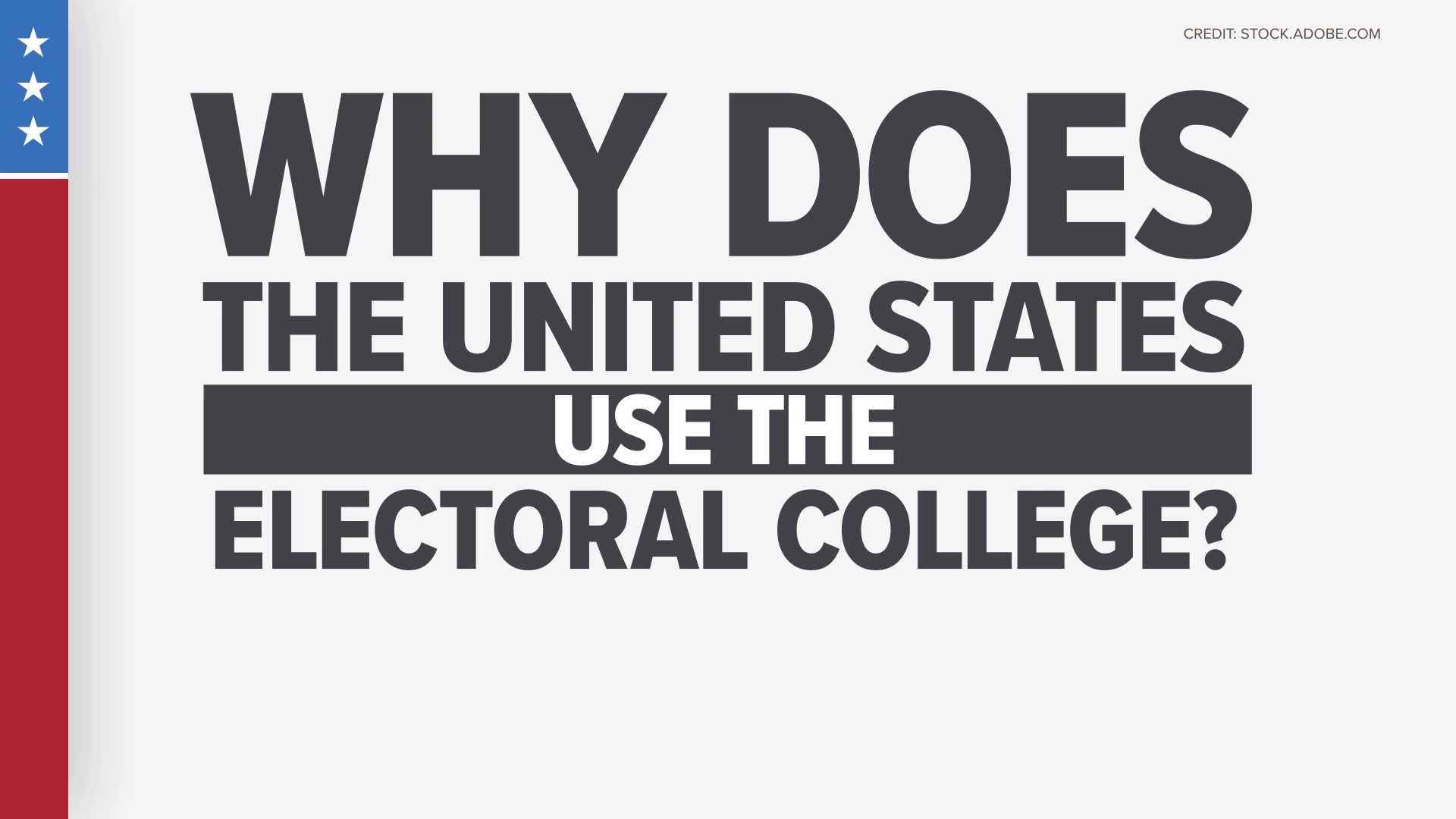ATLANTA — According to the National Archives, the U.S. Constitution contains very few provisions about the qualifications for electors.
Article II, section 1, clause 2, says that "no Senator or Representative, or Person holding an Office or Trust or Profit under the United States, shall be appointed an elector."
In addition, the 14th Amendment adds that state officials who have participated in insurrection or rebellion against the U.S., or given "aid and comfort to its enemies" are also not eligible.
Beyond that, each of the political parties selects a slate of potential electors at some point prior to the general election.
The selection process itself varies from state to state, but in most states, the slate of electors is either nominated at the political party's state convention or chosen by a vote of the party's central committee.
The individuals chosen may be elected officials in that state, state party leaders, or people within the state who have a personal or political connection to the presidential or vice-presidential candidate of the party.
In most states, including Georgia, the names of the electors do not appear on the ballot along with the candidates for president and vice president.
Once the state has certified the winning presidential candidate, the electors from that candidate's party will be the ones who will meet to actually vote for president and vice president.
The 2020 Democratic Party electors for Georgia are:
- Stacey Yvonne Abrams
- Gloria Butler
- Wendy Davis
- Bobby L. Fuse, Jr.
- Deborah Gonzalez
- Steve Henson
- Van R. Johnson
- Pedro "Pete" Marin
- Fenika Thomas Miller
- Ben E. Myers, Jr.
- Rachel Paule
- Calvin Smyre
- Bob Trammell, Jr.
- Sachin Varghese
- Nikema Williams
- Cathy Wollard
According to federal law, the meeting of the electors occurs on the first Monday after the second Wednesday in December -- this year, that date is December 14.
The process by which the Electoral College is very specific and codified in law.
When Georgia's electors meet in Atlanta on that date, they will vote twice by paper ballot -- first for president, then for vice president.
Each elector signs a Certificate of Ascertainment noting the outcome of the vote, and copies are sent via registered mail:
- One to the President of the Senate, in this case, Vice President Mike Pence.
- Two copies to the Archivist of the United States.
- Two copies to Georgia Secretary of State Brad Raffensperger.
- One copy will be sent to the chief judge of the U.S. District Court in Atlanta.
The copy being sent to Pence must arrive by December 23.
On January 6, at 1 p.m., during a joint session of Congress, Pence will open the correspondence from each of the states and have them read aloud.
Once a candidate has reached 270 electoral votes, they will be officially declared the winner of the presidential election.
In some states, the electors are free to vote for who they want to. These are referred to as "faithless electors," and are sometimes counted on by candidates to sway the election, especially in close contests.
This does not occur often, as the electors that are chosen by the political parties are usually individuals who are loyal to their party, and not likely to "go rogue" and select someone other than the party's nominee.
Some states have laws that outlaw faithless electors, while other states will simply replace those electors with alternate electors to avoid confusion.

